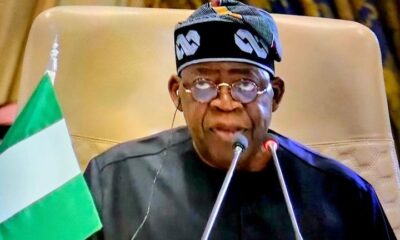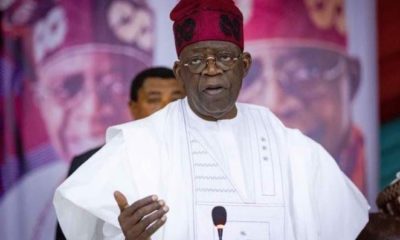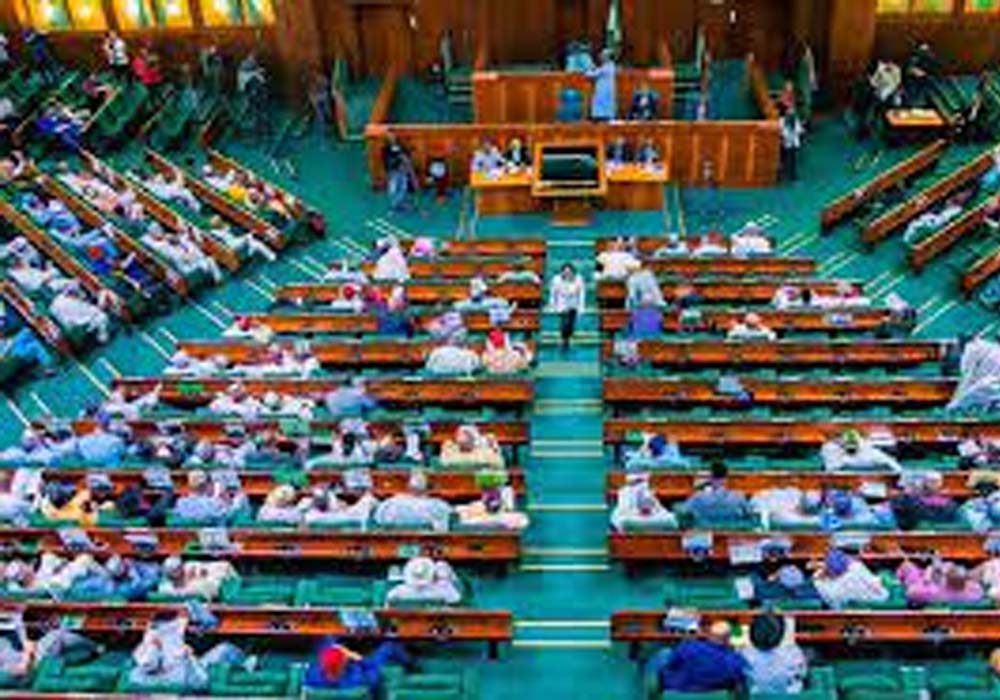Oil
FG To Close Petroleum Equalization Fund Amid Downstream Deregulation
After the deregulation of the downstream petroleum industry, the Federal Government has initiated steps to shut down the Petroleum Equalization Fund, according to sources.
This action aligns with the provisions stated in the Petroleum Industry Act 2021.
During a meeting held in Abuja, officials from the Nigerian Midstream and Downstream Petroleum Regulatory Authority engaged in discussions with oil marketers regarding the closure of the fund.
The primary agenda of the meeting involved reconciling the PEF accounts and devising plans for its closure in the next one month.
Tunji Oyebanji, aformer Chairman of Major Oil Marketers Association of Nigeria told newsmen that “The meeting was a consultation with the NMDPRA on implementation of the PIA, clarifications of various issues, applying for licences, quality issues and closure of the Petroleum Equalization Fund.
“Some people owe PEF and it also owes some people. There is a need for reconciliation to close out the account,” he explained.
Established in 2021, the Nigerian Midstream and Downstream Petroleum Regulatory Authority (NMDPRA) was created through the merger of three previously existing regulatory bodies which include the Petroleum Products Pricing Regulatory Agency, the Petroleum Equalization Fund (Management) Board, and the Midstream and Downstream Divisions of the Department of Petroleum Resources.
According to Mike Osatuyi, the National Controller of Operations for the Independent Petroleum Marketers Association of Nigeria, the Petroleum Equalization Fund (PEF) currently has outstanding debts amounting to approximately N80 billion owed to its members.
Osatuyi said “We do not owe the Fund because before you lift products, you would have made deposits. But the Fund owes us N80bn which would be paid before the closure.
“The money piled up over some time but it has stopped piling up. The role played by the Fund has ended upon the full deregulation of the downstream sector as stated in the PIA.”
He confirmed that IPMAN was also invited to reconcile its account with the Fund.
“No need for the Fund again since we have deregulated. We don’t know when the money they owe us would be paid but it would be paid before the accounts are eventually closed. The process has started and our members have been invited,” he added.
The Petroleum Equalization Fund (PEF) was established by Decree 9 of 1975, which was later amended by Decree Number 32 of 1989, and is now recognized as Chapter 352 of the Laws of the Federation.
Its primary objective is to maintain price consistency for petroleum products by reimbursing marketers for losses incurred during the transportation of products from depots to their respective filling stations across Nigeria.
Furthermore, a reliable source from the Depots and Petroleum Products Marketers Association of Nigeria verified that its members were invited to participate in the reconciliation meeting concerning the closure of the Petroleum Equalization Fund (PEF).
Oil
NNPC Targets 60% Methane Emission Reduction By 2031
The Nigerian National Petroleum Company Limited (NNPC) has unveiled a bold strategy to reduce methane emissions in the oil and gas sector by 60% by 2031, with an ultimate goal of achieving net-zero emissions by 2060.
This announcement reinforces Nigeria’s leadership role under the Global Methane Pledge initiative and its commitment to tackling climate change.
The Group Chief Executive Officer of NNPC, Mele Kyari, disclosed these plans during a meeting on Thursday with Robert Leahman, the U.S. State Department’s Global Methane Program Manager, and a delegation from Deloitte.
READ MORE: Atiku Gloats Over AUN’s Achievements Ahead Of 20th Anniversary
The discussions, held at the NNPC Towers in Abuja, focused on collaborative efforts to reduce methane emissions through innovative and sustainable practices.
“Reducing methane emissions is not just an environmental necessity but also a strategic imperative for Nigeria’s energy transition. We are leveraging partnerships to adopt global best practices and innovative solutions,” Kyari stated.
Key among these efforts is a pilot project in the Niger Delta, aimed at establishing emissions baselines, mitigating methane leaks, and promoting sustainable operations across Nigeria’s energy sector.
The project, a partnership between NNPC, Deloitte, and the U.S. Bureau of Energy Resources, will utilize data-driven methodologies to pinpoint and address methane hotspots.
Robert Leahman commended Nigeria’s proactive stance, describing it as a benchmark for other nations on the continent.
“Nigeria’s leadership under the Global Methane Pledge sets a standard for the continent. These initiatives will not only help reduce emissions but also drive sustainable development in the energy sector,” he said.
Kyari highlighted the broader benefits of addressing methane emissions, noting its significance for both environmental protection and economic efficiency.
“This collaboration is a game-changer. By addressing methane leaks, we’re reducing waste, saving costs, and protecting the environment. It’s a win-win for our economy and the planet,” he added.
Oil
FG Introduces New Incentives To Revitalize Nigeria’s Oil & Gas Industry
In a strategic move to revitalize Nigeria’s oil and gas sector, the Federal Government has unveiled two key fiscal incentives aimed at attracting investment and enhancing energy security.
The announcement was made by Mr. Wale Edun, the Minister of Finance and Coordinating Minister of the Economy on Wednesday.
The first initiative, the Value Added Tax (VAT) Modification Order 2024, introduces critical exemptions for essential energy products and infrastructure, including Diesel, Feed Gas, Liquefied Petroleum Gas (LPG), Compressed Natural Gas (CNG), Electric Vehicles, Liquefied Natural Gas (LNG) infrastructure, and Clean Cooking Equipment.
Read Also: Atiku Calls For Rotational Presidency Across Nigeria’s Geopolitical Zones
These exemptions are designed to reduce living costs for Nigerians, promote energy security, and accelerate the transition to cleaner energy alternatives.
The second initiative, the Notice of Tax Incentives for Deep Offshore Oil & Gas Production, offers new tax relief options for deep offshore exploration projects.
This measure aims to position Nigeria’s deep offshore basin as a premier destination for international oil and gas investments, boosting the country’s appeal to foreign investors.
These reforms are part of a broader set of policy initiatives, known as Policy Directives 40-42, endorsed by President Bola Ahmed Tinubu.
The directives reflect the administration’s commitment to fostering sustainable development in the energy sector and enhancing Nigeria’s competitive edge in the global oil and gas market.
Business
Tinubu set to approve ExxonMobil-Seplat oil deal, expands CNG bus initiative

By Yemie Adeoye
NIGERIA’s President Bola Tinubu has announced that the protracted ExxonMobil-Seplat upstream oil divestment will be formally approved by the Minister of petroleum within a matter of days, just as he announced his government’s intention to expand the Compress natural Gas, CNG buses initiative.
The President who stated this during his Independence day nationwide broadcast stated that the move is in line with his administration’s commitment to free enterprise, free entry and free exit in investments which is the hallmark of his administration investment policy.
“Fellow compatriots, our administration is committed to free enterprise, free entry, and free exit in investments while maintaining the sanctity and efficacy of our regulatory processes. This principle guides the divestment transactions in our upstream petroleum sector, where we are committed to changing the fortune positively. As such, the ExxonMobil Seplat divestment will receive ministerial approval in a matter of days, having been concluded by the regulator, NUPRC, in line with the Petroleum Industry Act, PIA. This was done in the same manner as other qualified divestments approved in the sector.”
The President also seized the opportunity to plead with Nigerians to be patient with his administration’s reform policies. “As your President, I assure you that we are committed to finding sustainable solutions to alleviate the suffering of our citizens. Once again, I plead for your patience as the reforms we are implementing show positive signs, and we are beginning to see light at the end of the tunnel”.
“Our energy transition programme is on course. We are expanding the adoption of the Presidential Initiative on Compressed Natural Gas for mass transit with private sector players. The Federal Government is ready to assist the thirty-six States and FCT in acquiring CNG buses for cheaper public transportation.
Fellow Nigerians, while we are working to stabilise the economy and secure the country, we also seek to foster national unity and build social harmony and cohesion. Our economy can only thrive when there is peace”. he enthused.






















